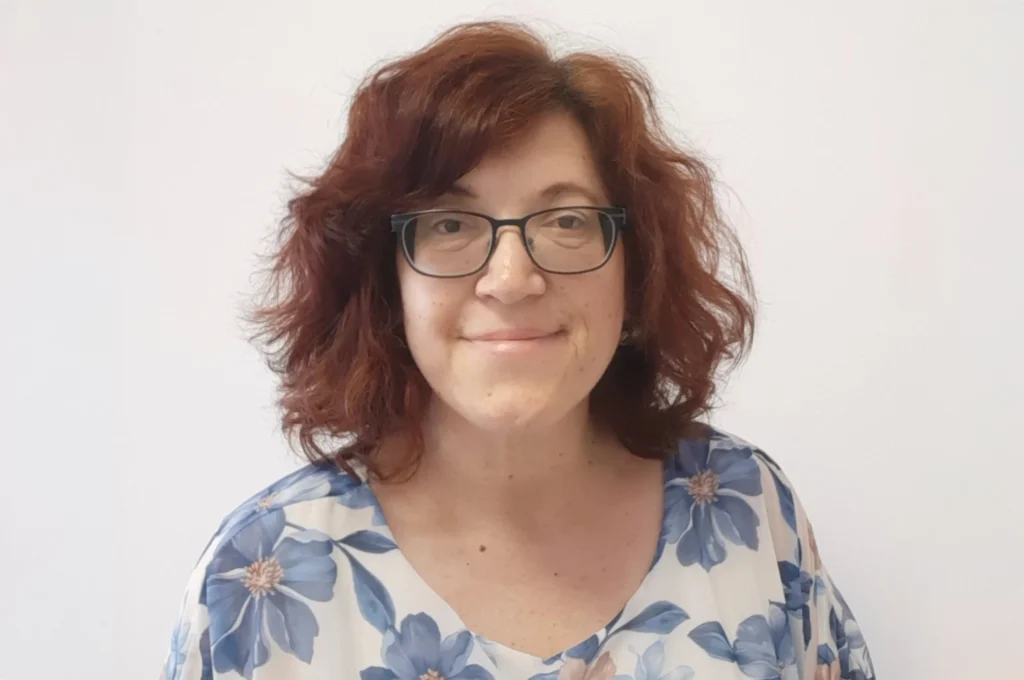A Journey of Resilience and Renaissance
July 2025In this interview led by Matt Bolz-Johnson, our ATMP and Mental Health Advisor, Sheila Kawaja shares her experience of receiving a life-altering diagnosis that deeply impacted her both physically and mentally.

Sheila Kawaja’s Testimony
The Beginning of a Long Battle
In October 2003, I was diagnosed with a rare endocrine condition, after more than a year of constant, piercing headaches, that lasted 24 hours a day and occurred nearly every day of the month. It was a nightmare. I had been seeing a headache specialist who dismissed my concerns, asking me to keep a diary of what I ate, as if the headaches were triggered by something trivial. But I knew something was wrong. My pleas for tests were ignored and I wasted six months trusting his judgment, relying on a dangerous self-made cocktail of drugs just to survive the pain, until my GP became aware of how much Valium I needed to take.
Things worsened during a summer vacation in Austria. I became photophobic, unable to tolerate sunlight, and spent most of my time trapped indoors. After returning home, I began to lose my sight in one eye and demanded an MRI scan. Finally, the doctors found the reason for these symptoms was a pituitary adenoma. Thankfully, the tumour was benign, but this diagnosis was only the beginning of an extremely challenging journey.
Defying the Odds
Despite the devastating news, I refused to let the rare condition stopping me from living my life. I had an international conference I needed to attend. But on my return, my health worsened. I became diabetic, with glucose levels so high that I was on the verge of a coma.
What followed were years of treatments that needed to be tweaked before they had any effect. My physical appearance changed so drastically that I could not look at myself in the mirror. My hair became thick and coarse, my body swelled, and I completely lost control of my life. I covered every mirror in my house. I was overwhelmed by mood swings and depression. At one point, I had suicidal thoughts and had to be watched constantly by my family. Due to the impact my poor health had on my life, I lost my job and my independence. This was a very dark period of my life.
Finding Strength and Purpose
But slowly, things began to change. I can’t pinpoint exactly when it happened, but something inside me pushed back, and I began to fight to regain control of my life from the rare condition. As my treatment improved, I eventually went into remission. From a cupboard full of medications, injections, and insulin, I am now down to just two pills a day.
When I graduated with my master’s degree in 2012, I saw it as my second chance. I was not going to let anything hold me back. I started my own business, learned from my mistakes, and discovered a new passion: advocacy. This journey began when my endocrinologist invited me to a patient conference. From there, I became the president of a local patient organization, which eventually led to me joining the World Alliance of Pituitary Organizations where I was active until 2022.
A Message of Hope
Looking back, one of the most important lessons I have learned is to question everything, especially when it comes to doctors. If I had blindly followed the advice of the first specialist, I may never have been properly diagnosed. It is crucial to have support around you, whether it is friends or patient groups, to help track your journey and advocate for you. Today, I am grateful for the second chance I have been given. I laugh more, enjoy being around people, and live every moment fully.
To anyone on a similar journey, my advice is simple: never stop fighting, surround yourself with those who truly care about you, and take control of your health. Life’s challenges may be overwhelming, but it is how you respond to them that defines you. Lastly, and most importantly, seek mental health support, something I wish I had during my journey.
Over the coming weeks and months, EURORDIS will continue publishing testimonies obtained from advocates living with a rare disease who have kindly shared with us their experiences of the impact of having a rare disease on mental wellbeing and their hopes for the future.
If you would be willing to share your own personal story as one of our testimony please contact Matt Bolz-Johnson, our Mental Health & Wellbeing Lead, at matt.johnson@eurordis.org.
Our last testimony was from Brona Kearney, who shared her experience with Friedreich’s Ataxia (FA), a progressive rare disease she was diagnosed with at a young age.
Visit our Mental Health & Wellbeing webpage to read upcoming articles from our series of testimonies.
